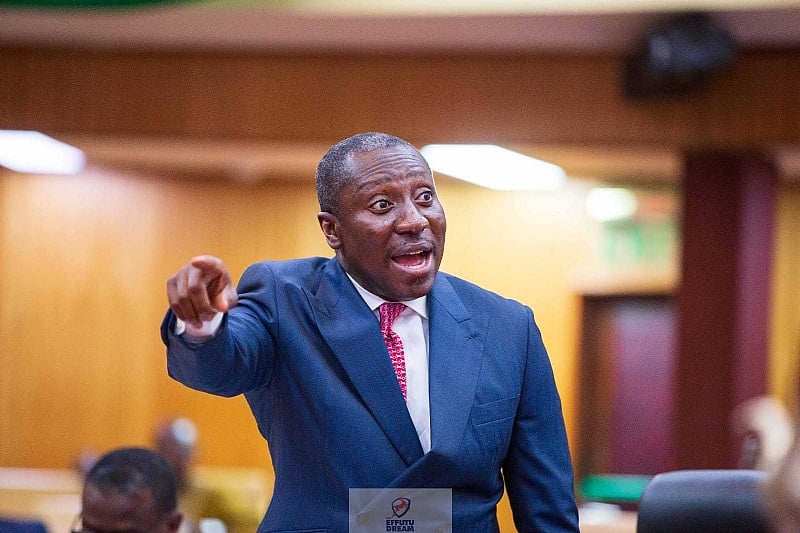The political atmosphere in Ghana’s Parliament has become highly charged, marked by accusations of obstruction and intimidation. Minority Leader, Alexander Kwamina Afenyo-Markin, has launched a scathing critique of the Majority caucus, alleging deliberate hindrance of government operations coupled with an atmosphere of intimidation directed towards the Minority. The central point of contention revolves around the Speaker of Parliament, Alban Bagbin’s decision to suspend four Members of Parliament following a disruptive incident during the vetting of a ministerial nominee. This action, according to Afenyo-Markin, represents a gross overreach of authority and a blatant disregard for due process, setting a dangerous precedent for parliamentary conduct. He argues that the Speaker bypassed established procedures for addressing disorderly conduct, which should have been handled at the committee level. The Speaker’s unilateral decision, without affording the accused MPs a hearing, is seen as a violation of their rights and a breach of parliamentary rules.
The Minority Leader’s condemnation extends beyond the procedural aspects of the suspensions, delving into the fundamental principles of justice and fairness. He draws an analogy to a judge summarily punishing an alleged thief without a trial, questioning the disregard for evidence gathering and due process. This, he argues, undermines the very foundation of the legal system, where guilt must be proven, not assumed. Afenyo-Markin’s pointed questions highlight the potential for abuse of power when established procedures are ignored, raising concerns about the implications for parliamentary democracy. He stresses that while accusations of wrongdoing may exist, it is the adherence to due process that ensures fairness and protects against arbitrary punishment.
The Minority Leader’s critique further encompasses the Majority caucus’s alleged disregard for parliamentary procedures, accusing them of not only disrespecting the Speaker’s orders but also contributing to the obstructive environment in Parliament. He specifically points to the Majority’s failure to immediately reconstitute the appointment committee, as directed by the Speaker, further exacerbating the delays in government business. This, according to Afenyo-Markin, reveals a pattern of deliberate obstructionism, hindering the smooth functioning of Parliament and impeding the government’s ability to carry out its mandate.
Afenyo-Markin’s appeal to Majority Leader Mahama Ayariga underscores the escalating tension within Parliament. He calls upon Ayariga, whom he acknowledges for his diplomatic approach, to intervene and “tame the wild dogs” within the NDC who are allegedly obstructing government business. This direct appeal highlights the Minority’s frustration with the perceived aggressive behavior of some members of the Majority, which they believe is contributing to the dysfunctional parliamentary environment. The use of such strong language underscores the seriousness of the situation and the urgent need for intervention to restore order and decorum.
Despite the strong condemnation of the Speaker’s actions and the Majority’s conduct, the Minority Leader maintains a commitment to respectful engagement. He emphasizes that the NPP Minority will continue to interact with the Speaker out of respect for the office, while simultaneously pursuing other avenues to address their grievances. This dual approach demonstrates a strategic balance between maintaining institutional decorum and pursuing justice for the suspended MPs. It highlights the Minority’s commitment to upholding the principles of parliamentary democracy while firmly advocating for the rights of its members.
The escalation of the matter to the NPP party leadership signifies the gravity of the situation. By bringing the issue to the attention of the National Chairman, General Secretary, and other national executives, the Minority caucus is seeking broader support and intervention within the party structure. This move signals the Minority’s intent to pursue all available avenues to ensure that the suspended MPs receive a fair hearing and that the principles of due process are upheld within Parliament. It also suggests a potential widening of the conflict, with the party leadership now becoming involved in the dispute. This could have further implications for the relationship between the Majority and Minority caucuses and the overall functioning of Parliament.


